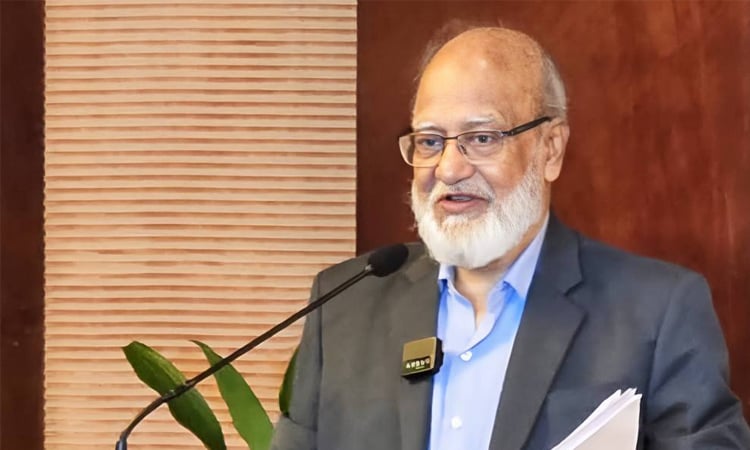Listen to the article
BNP Leader Defends Party’s Stance on Reforms Amid “Misinformation Campaign”
Senior Bangladesh Nationalist Party (BNP) leader Dr. Khandaker Mosharraf Hossain has strongly refuted allegations that his party opposes state reforms following the July uprising, calling such claims part of a deliberate misinformation campaign.
Speaking at the unveiling ceremony of “Tarique Rahman Politics and Policy” at Dhaka’s Hotel Sheraton, Mosharraf emphasized the BNP’s long-standing commitment to reforming Bangladesh’s governance structures.
“Due to misinformation spread in the name of the BNP concerning reforms, some people say that we do not want reforms. My question is – ‘If we don’t want reforms, then who did?'” Mosharraf stated. He highlighted that the BNP has actively cooperated with commissions established by the interim government and made significant compromises during the process.
The veteran politician pointed out that many elements in the July Charter closely align with the 31-point framework for state reform previously announced by the BNP. “We announced the 31-point program for state reform even before this government came to power. Before this, Shaheed President Ziaur Rahman announced the 19-point program and Begum Khaleda Zia announced ‘Vision 2030’. We have always spoken in favor of reforms,” he explained.
Mosharraf expressed concern about what he described as ongoing conspiracies regarding the upcoming national election, suggesting some factions aim to delay or cancel the polls entirely. “Some people are now conspiring about the election… Additionally, some individuals are trying to create various other crises here by turning non-issues into issues,” he warned.
The BNP leader affirmed his party’s commitment to the democratic process, stating unequivocally that “there is no alternative to an election for establishing democracy in the country.” He expressed confidence that the interim government would organize fair elections in February 2026 and properly transfer power to the winning party.
Taking aim at proposals for a Proportional Representation (PR) electoral system, Mosharraf dismissed them as impractical for Bangladesh. “If elections are held under the PR system, there will often be crisis in government formation in the country,” he argued, explaining that a party receiving 40 percent of votes would gain only 120 parliamentary seats, insufficient to form a stable government.
“In this method, the people will not get their own representatives; they will get party representatives. This is never acceptable,” Mosharraf added.
During the same event, BNP Standing Committee member Amir Khasru Mahmud Chowdhury outlined the party’s vision for Bangladesh’s future, emphasizing public participation and equal economic opportunities. “The BNP wants to build a political and economic system where public participation and equal opportunities for all are ensured,” Khasru said, adding that the party aims to make the country self-reliant through increased investment and job creation.
Khasru also praised Tarique Rahman’s leadership, describing him as a “beacon” capable of empowering Bangladeshis, while warning against foreign interference in domestic affairs.
The event drew notable attendance from academic and political figures, including former Dhaka University Vice-Chancellor Professor Anwarullah Chowdhury, BNP Acting Chairman’s adviser Dr. Mahadi Amin, and Nationalist Democratic Movement Chairman Bobby Hajjaj.
This public defense of the BNP’s reform agenda comes at a critical time for Bangladesh’s political landscape as the country continues its transition following the July uprising that led to the fall of the previous government. Political observers note that the positioning of major parties on reform issues will likely play a decisive role in the upcoming February elections, which represent a pivotal moment in the country’s democratic journey.
Fact Checker
Verify the accuracy of this article using The Disinformation Commission analysis and real-time sources.




7 Comments
This is an interesting development in Bangladeshi politics. It’s important to hear both sides of the story when it comes to reforms and allegations of propaganda. I appreciate the BNP leader’s willingness to address these issues directly.
Agreed. Transparency and open dialogue are crucial during times of political change. I hope both the government and opposition can find common ground to implement meaningful reforms for the benefit of the Bangladeshi people.
The BNP’s claims of a misinformation campaign raise some valid concerns. It’s crucial that the public has access to accurate, unbiased information about the party’s reform agenda and its alignment with the government’s initiatives. Fact-checking will be important here.
It’s interesting to see the BNP leader’s perspective on the alleged propaganda campaign against their reform efforts. Sounds like they have a long-standing reform agenda that predates the current government. I’m curious to learn more about the specifics of their 31-point program for state reform.
Yes, the BNP’s claims of a misinformation campaign are worth investigating further. It would be helpful to get more details on the reforms they support and how they differ from the government’s approach.
The allegations of a propaganda campaign against the BNP’s reform efforts are concerning. Transparency and open dialogue are crucial, as is fact-checking to ensure the public has access to accurate information. I’m curious to learn more about the BNP’s specific reform proposals and how they align with the government’s initiatives.
This seems like a complex and nuanced political situation. I’m glad to see the BNP leader addressing the allegations directly and highlighting their long-standing reform efforts. It will be important to understand the specifics of their 31-point program and how it compares to the government’s approach.